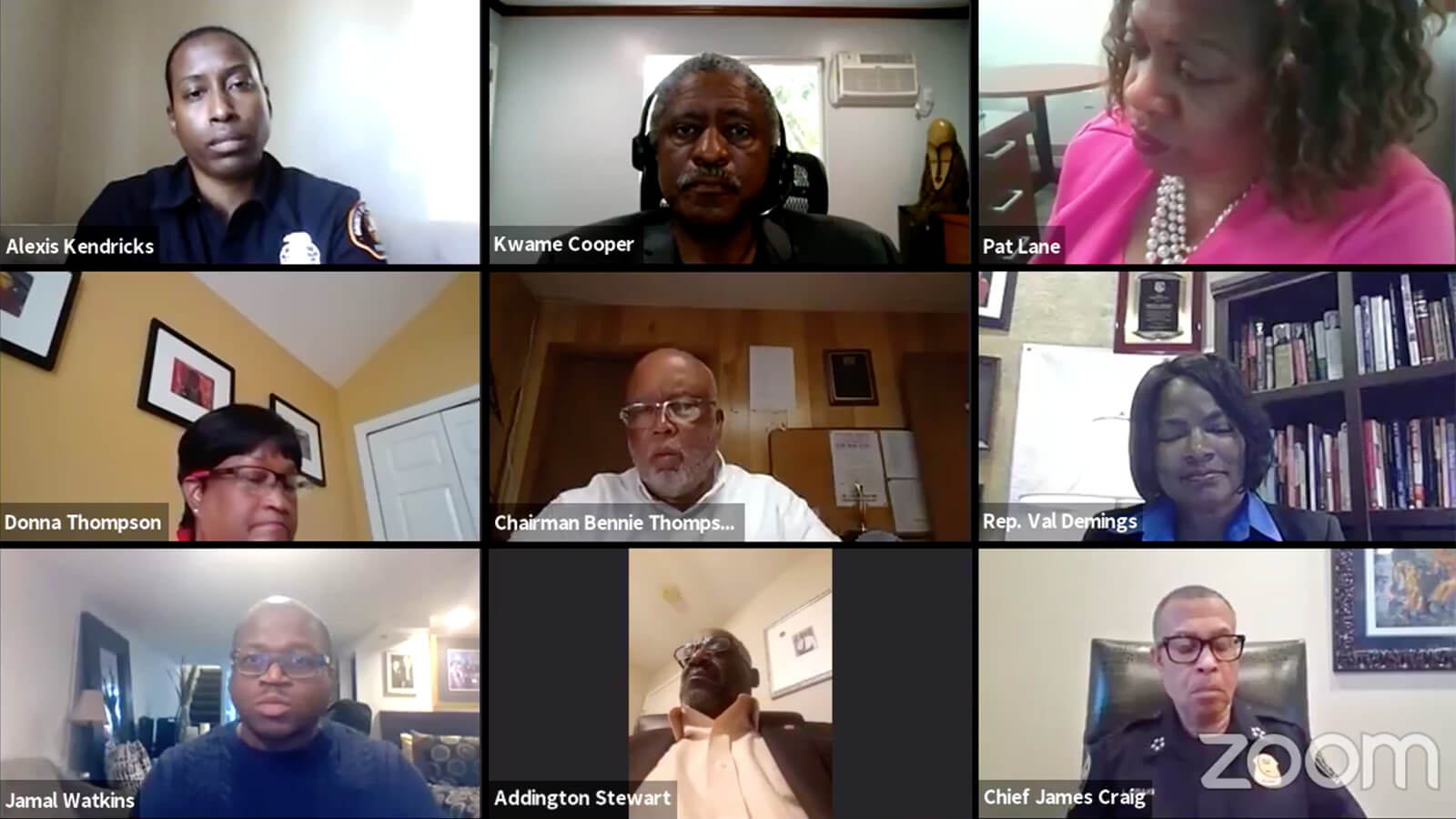
MIAMI – Ramon Williams works in health care because he enjoys taking care of patients and being part of a workplace that is dedicated to the same mission. As a respiratory therapist at University of Florida Health in Jacksonville, the hospital worker is on the front lines of the fight against COVID-19.
But as the Local 1781 (AFSCME Florida) steward said during a telephone town hall hosted by the Congressional Black Caucus (CBC), without more state and local funding help from Congress, the long road ahead will get much harder for his community.
Monday’s town hall was hosted by CBC Chair Rep. Karen Bass from California and Mississippi Rep. Bennie Thompson, both strong voices for AFSCME members on Capitol Hill.
“Here in Jacksonville we have been lucky, there is no other way to put it. Even with our prep, we didn’t have enough personal protective equipment then and we still don’t have enough today,” said Williams, who is still being issued only one mask to use for every three shifts. “And yes, there are still way too few tests. I work at the largest health facility in Duval County, home to a million people. Can I get a test at the very hospital I work at? No.”
Now Williams and his co-workers face the very real threat that their hours or pay will be cut, or they will lose their jobs.
“Can you imagine if we thank these courageous folks with a pink slip?” asked AFSCME President Lee Saunders, who also participated in the CBC’s town hall. “But that’s exactly what’s in danger of happening right now, because state and local governments are rapidly going broke.”
“The austerity measures of the last dozen years were already putting their budgets in a precarious position,” Saunders added. “Now, with demand for public services spiking at the very moment when the economy is collapsing, state and local governments are beginning to impose layoffs and furloughs.”
Last week, the Center on Budget and Policy Priorities reported that states are looking at revenue deficits of $650 billion over the next three years. Front-line workers like Williams worry that, unless Congress acts, the impulse to cut staff hours and coverage will only accelerate, even as UF Health Jacksonville restarts elective surgeries and patient visits.
“What is becoming clear is that my mayor, my governor and my president believe that I am essential during a pandemic but expendable in their drive to return America to rush-hour traffic jams, sunburns on the beach and being able to claim mission accomplished while thousands are still dying,” said Williams.
“If we see massive layoffs and cuts to public services, entire communities will suffer both from a public health and economic perspective. We can’t fight this pandemic or reopen the economy without strong public services and public service workers,” Williams said. “Let me keep working and serving my community. Don’t thank me with a pink slip.”
